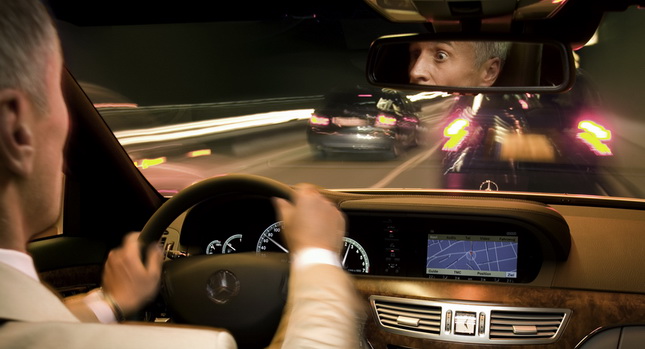Surely, it has happened to you. You embark on a journey driving your car and, when you feel tired or ready to fall asleep, you keep on driving because you just have to get there on time. At best, you drink a cup of coffee hoping it will wake you up. What you don’t realize is that you are setting up the scene for a, possibly fatal, accident.
A new UK study by Brake and Cambridge Weight Plan that was presented today at a Parliamentary reception attended by MPs and road safety professionals revealed than in the past year, one in eight drivers has “head-nodded” at the wheel, or in other words, fallen asleep between 2 and 30 seconds, often without even realizing it.
The survey of 1,000 drivers also revealed that one in four drivers decide to embark on a journey despite feeling drowsy. The worst is that the vast majority, an incredible 86%, admits to not dealing with tiredness behind the wheel in a proper manner, that is, stop somewhere and sleep for a while. Almost one in three (29%) continue to drive even after they realize that they are tired and drowsy.
Brake’s campaign director, Julie Townsend, said: :“Tiredness at the wheel kills. Driving a vehicle is a huge responsibility that must be taken seriously. That means stopping when we feel drowsy and certainly never starting a journey tired. It’s a matter of life and death. We still have widespread misunderstanding of how to prevent driver tiredness, and ignorance about factors like sleep apnea, a condition that can be treated.”
Experts estimate that one in five fatal accidents on motorways are caused by tired drivers. Those accidents tend to happen at high-speeds because drivers do not have time to brake, so the risk of death or serious injury occurring is greater than in other types of crashes.
Here are some tips from the experts that will help you avoid falling asleep behind the wheel:
- Get plenty of sleep before a journey, plan your journey to include time for adequate rest and don’t set out if you are already tired.
- Take rest breaks at least every two hours for a minimum of fifteen minutes.
- If you feel tired when you are driving, listen to the warning signs and stop for a break somewhere safe as soon as you can. Sleep ensues faster than you think – trying to fight off sleep by opening the window or listening to the radio puts you at risk of ‘micro sleeps’, when you nod off for two to 30 seconds without remembering it. Micro sleeps can be fatal: at 70mph a driver travels 200m in six seconds.
- If you start to feel sleepy while driving stop for a 15 minute break somewhere safe as soon as possible.
- If you drink caffeine, drink two cups of coffee or a high-caffeine drink, such as an energy drink, then take a 10-15 minute rest or snooze.
- By the time you wake up any caffeine will have kicked in and you may feel alert enough to continue your journey. If you still feel tired, or you still have a long way to go, you should stay put and try to find somewhere to get a good night’s sleep.
- Remember caffeine is a temporary drug and its effects do not last long. Sleep is the only long-term cure to tiredness.
- If you notice that you are feeling tired during the day, go and see your doctor. You may have a treatable sleep disorder such as obstructive sleep apnoea. Other symptoms include snoring, depression, high blood pressure and poor concentration.
_______________________________________________________________________







